Not Evil Just Wrong is a film of genre Documentary directed by Phelim McAleer released in USA on 18 october 2009
Not Evil Just Wrong (2009)

If you like this film, let us know!
Released in USA 18 october 2009
Length 1h30
Genres Documentary
Themes Environmental films, Documentary films about business, Documentary films about environmental issues, Disaster films
Rating50%










Not Evil Just Wrong is a 2009 documentary film by Ann McElhinney and Phelim McAleer that challenges Al Gore's An Inconvenient Truth by suggesting that the evidence of global warming is inconclusive and that the impact global warming legislation will have on industry is much more harmful to humans than beneficial. The movie was filmed in 2008 and was screened at the International Documentary Film Festival Amsterdam and at the RightOnline conference in 2009.
Despite earlier screenings at conservative political conferences, filmmakers promoted a "premiere" on October 18, 2009. The film attempted to break a World Record for largest simultaneous premiere, which is currently held by the documentary The Age of Stupid, another global warming documentary. The film's website claims that there were 6,500 U.S. screenings and 1,500 foreign screenings and reached 400,000 people.
Comments
Leave comment :
Suggestions of similar film to Not Evil Just Wrong
There are 2 films with the same director, 8861 with the same cinematographic genres, 3072 films with the same themes (including 4 films with the same 4 themes than Not Evil Just Wrong), to have finally 70 suggestions of similar films.If you liked Not Evil Just Wrong, you will probably like those similar films :
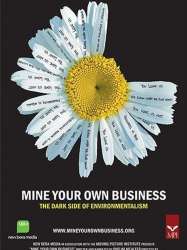
Mine Your Own Business (2006)
Directed by Phelim McAleer, Ann McElhinney
Origin USA
Genres Documentary
Themes Environmental films, Documentary films about business, Documentary films about environmental issues
Actors Phelim McAleer
Rating60%





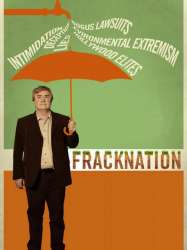
FrackNation (2013)
Directed by Phelim McAleer, Ann McElhinney
Origin USA
Genres Documentary
Themes Environmental films, Documentary films about environmental issues, Documentary films about technology
Rating58%





Official synopsis: "In FrackNation journalist Phelim McAleer faces threats, cops, and bogus lawsuits questioning green extremists for the truth about fracking. McAleer uncovers fracking facts suppressed by environmental activists, and he talks with rural Americans whose livelihoods are at risk if fracking is banned."

The River (1938)
, 31minutesDirected by Pare Lorentz
Origin USA
Genres Documentary
Themes Environmental films, Documentary films about business, Documentary films about environmental issues, Documentary films about historical events, Disaster films
Actors Thomas Chalmers
Rating63%





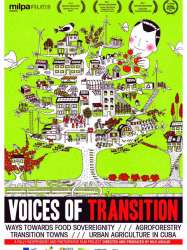
Voices of Transition (2012)
, 1h5Origin France
Genres Documentary
Themes Environmental films, La mondialisation, Films about the labor movement, Documentary films about business, Documentary films about environmental issues, Documentary films about technology, Documentaire sur le monde du travail, Disaster films
Rating75%





Using interviews and overlays of graphics and text, the film presents the current problems facing industrial agriculture. It explores why in the interviewees' view the current industrial model is not up to the task of feeding the world's people. According to the film every calorie of energy contained in a food source currently takes between 10 and 20 calories of crude oil in the production of fertilizers and transportation to produce, leading to a strong dependence of the cost of food on oil prices. As a result of peak oil and increasing oil prices this dependence will lead to ever increasing food prices. According to the film, this dependence already represents a significant weak-spot in the global food supply chain. Additionally, agriculture is already responsible for 40% of greenhouse gas emissions, contributing to climate change. Furthermore, the film argues that the overuse of inorganic fertilizers has been responsible for the loss of soil fertility and threatens the complete loss of usable soil within the next decades through soil erosion and sinking crop yields. These effects, according to the film, can only be partly mitigated by the increased use of those same fertilizers. The loss of workplaces, the concentration of land in the hands of a few (allegedly a farm closes every 23 minutes in France) as well as the dependence on large corporations are enumerated as side effects of the industrialisation of agriculture since the 1920s. Companies, such as Monsanto and Bayer, control everything from seed stock to fertilizers and the necessary chemical mixes for hybrid plants, thereby controlling the entire supply chain. The film argues that this development was supported through subsidies from the World Bank. Interviews with Vandana Shiva, the founder of the Transition Towns movement Rob Hopkins and various agricultural experts serve to argue this viewpoint. The dependence on crude oil is illustrated through the example of the wholesale food market in Rungis.
 , 40minutes
, 40minutesOrigin USA
Genres Documentary
Themes Environmental films, Documentary films about business, Documentary films about environmental issues, Documentary films about historical events, Documentary films about technology, Disaster films
Rating57%






Sludge (2005)
Origin USA
Genres Documentary
Themes Environmental films, Documentary films about business, Documentary films about environmental issues, Documentary films about historical events, Documentary films about technology, Disaster films

White Horse (2008)
, 18minutesOrigin USA
Genres Documentary
Themes Environmental films, Documentary films about environmental issues, Documentary films about historical events, Documentary films about nuclear technology, Documentary films about technology, Disaster films
Rating69%





The beginning of the film starts with DeLeo, Bisson and Surkov driving through Kiev. This is introduced as the beginning of their journey to Pripyat, near the ground zero of Chernobyl. Once they reach the outpost outside the exclusion zone, we see that the area surrounding Pripyat is very deserted and dark. Once in the city, we see Surkov's old home, which he explains has been robbed of almost all its belongings due to looters. Yet there are still some mementos in the old apartment, including the wallpaper he and his mother put up, the training bars his father bought for him, an old rubber ball he claims was his favorite and a white horse poster plastered on the wall of his old bedroom. The pain he feels is evident. When he sees an old calendar on a door, he rips a large portion off, claiming "the year ended on April 26th". Outside the door of the apartment, he remarks how he wishes he could stay forever. He throws his old ball through the door and walks out of the apartment complex. The film ends with Surkov snapping some twigs in an old courtyard and then an image of the car they traveled in leaving the exclusion zone.
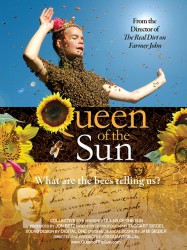
Queen of the Sun (2010)
, 1h23Origin USA
Genres Documentary
Themes Films about animals, Environmental films, Documentary films about business, Documentary films about environmental issues, Films about insects
Rating71%





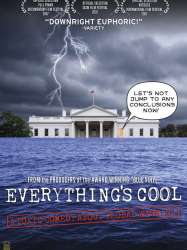
Everything's Cool (2007)
Genres Documentary
Themes Environmental films, Documentary films about environmental issues, Disaster films
Actors Leonardo DiCaprio, Bill Maher, Oprah Winfrey
Rating67%






Sun Come Up (2011)
, 38minutesOrigin USA
Genres Documentary
Themes Environmental films, Seafaring films, Transport films, Documentary films about environmental issues, Documentary films about nature, Disaster films
Rating67%





 Connection
Connection